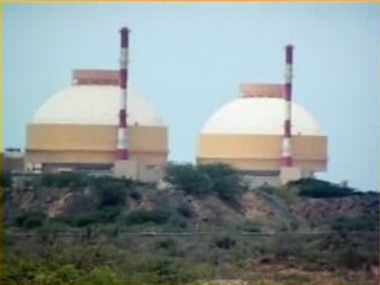In a revision petition to the Home Ministry, an NGO in Tamil Nadu has sought the setting aside of the order prohibiting foreign contribution to it. “Instead of understanding the people’s genuine feelings and fulfilling our demands, the government has foisted serious cases of ‘sedition’ and ‘waging war on the Indian state’ on the leaders of our movement. There are as many as 180-200 cases on us. There have been police harassment, intelligence officers’ stalking, concocted news reports in the pro-government media, abuse of our family members, hate mail, death threats and even physical attack,” writes SP Udayakumar, the man leading the People’s Movement Against Nuclear Energy from Idinthakarai village (neighbouring Kudankulam) in the coastal district of Tirunelveli in Tamil Nadu, in an open letter (28 February) seeking solidarity. Read full letter here . . Udayakumar hit the headlines recently for sending a legal notice to the Prime Minister for suggesting that international NGOs were behind the protests against the Russian-built nuclear power plant in Kudankulam. The agitation against the nuclear plant began on August-September and since 18 October has continued uninterrupted, with people from the two villages organising multiple forms of protest, including an ongoing relay fast. [caption id=“attachment_248866” align=“alignleft” width=“380” caption=“The notices and orders to NGOs from the Home Ministry, make no mention of Kudankulam protests or funds being diverted to it.”]  [/caption] And since late November-Early December, it has been raining notices on foreign-funded NGOs in Tamil Nadu from the FCRA (Foreign Contribution Regulation Act) division of the Home Ministry. First a notice is sent to the NGO, attached with a questionnaire – with 32 questions — seeking details of bank accounts, receipt and utilisation of foreign contribution, assets or investments made out of foreign contribution and organisation’s finances, management, revenue and staff. Following which, a team of FCRA officials visit the office to inspect the files. Late February, days after Manmohan Singh went public with the government’s response to the protests, accounts of four NGOs operating in the region were frozen on allegations of violating FCRA violations. A senior official in Ministry of External Affairs, speaking on the condition of anonymity, said that instructions had been given to “monitor anyone coming on volunteer/conference/NGO visa to that part of the world especially from the European Union and the US. And secondly, to verify the papers of people who are already there.” A German national, Rainer Sonntag Hermann was deported from Chennai on 28 February for allegedly assisting the protests. ( Read Tehelka interview with the Hermann) Interestingly, the notices and orders from the Home Ministry make no mention of Kudankulam protests or funds being diverted to it. The four-paragraph order prohibiting foreign contribution to the NGO, like the one received by the Nagercoil-based Rural Uplift Centre (RUC) on 9 February, states that the inspection of the accounts “has revealed that the association has violated the provisions of the FCRA, 2010” and that acceptance of foreign contribution “likely to prejudicially affect public interest.” The RUC has in a revision petition (under Rule 20 of the FCRA Rules, 2011) on 21 February to the secretary of the home ministry, sought the setting aside of the prohibition order on seven grounds. Its states that the Home Ministry’s order “does not mention any illegality or irregularity either in the accounts or in the functioning of the organisation”, that “the officers who inspected the office and the records have not come forward with any adverse report after their inspection (conducted from 10-12 of January) bringing out anything illegal or made any adverse comments, and that the order was passed “without any reason and also without providing the petitioner an opportunity of hearing.” Henri Tiphagne, the national working secretary of the All India Network of NGOs and Individuals working with National and State Human Rights Institutions (AINNI), says, “It is up to the government to accept the petition or not. If they don’t, the NGOs will have no other option but to go to court.” Tiphagne says he is not against government scrutiny of accounts and in fact welcomes it. “When a donor agency has auditors from other countries coming into our offices and looking into our accounts, my government has every right to do it too. That much I think NGOs must learn to understand. We are subject to scrutiny and that scrutiny can happen anytime.” But it is the lack of transparency, the absence of any show cause by the government for freezing bank accounts and prohibiting foreign contribution, he is opposed to. “If an organisation has misused funds, no NGO collective will stand up for them. None of us believe that foreign resources should be diverted for people’s protest. But this is an unfounded allegation. Unfortunately, this kind of reaction is reflection of political protests in India where people are paid and transported to come. The government’s psyche does not allow them to comprehend a spontaneous, seventh-month long people’s movement,” says Tiphagne.
In a revision petition to the Home Ministry, an NGO in Tamil Nadu has sought the setting aside of the order prohibiting foreign contribution to it.
Advertisement
End of Article


)
)
)
)
)
)
)
)
)



